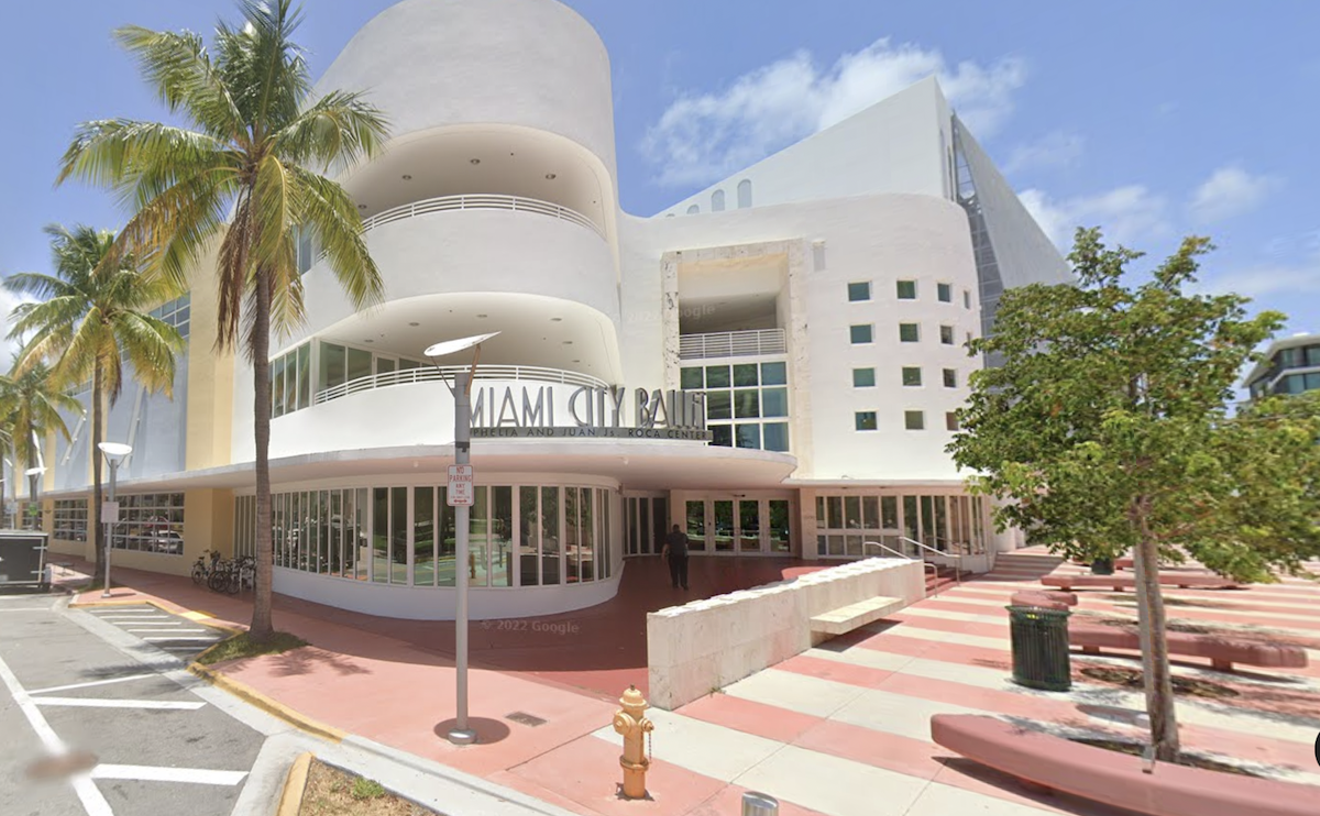"You have to use your imagination," Ted Bachan says and then steps into a puddle of rain outside the historic Lyric Theater. "This is going to be backstage, and over here will be a gift shop."
Bachan is a 45-year-old man of heavy build and meticulous style. He gestures toward the hollow frame of a building a few yards from where Ella Fitzgerald, Duke Ellington, and Louis Armstrong once sang. "We are going to keep the character and integrity of this place."
He is in charge of a $10 million county-funded project to expand the stage, add offices, and build dressing rooms in the Lyric Theater. Planning began in 2005, but only two stories of the structure have been built in five years. In the meantime, Bachan has earned at least $684,000 on the county's dime.
What's more troubling: He was sentenced to probation for organized fraud and grand theft on the job in 2003. It happened just a few months before Miami-Dade began writing his paychecks. And the Black Archives History and Research Foundation of South Florida — the organization helming the renovation — hired him knowing about his spotty past.
Told about Bachan's background and project spending, Miami-Dade County Commissioner Audrey Edmonson told New Times: "I'm speechless. This concerns me a lot." (Responds Black Archives executive director Timothy Barber: "You don't think people deserve a second chance?")
The delays raise questions about oversight and leadership in one of Miami's poorest neighborhoods, a place that seems cursed by misspent public money, unfinished projects, and broken promises. They are just the latest glitch at a theater that for years has hung in limbo.
Built in 1913, the 400-seat, white-pillared beauty was funded by a wealthy black man named Geder Walker. He traveled the world and wanted to build a European-style opera house in what was then a black community called Colored Town. The gleaming new structure showcased silent movies, Vaudeville theater, and live music. Two years later, the Miami Metropolis newspaper raved it was "possibly the most beautiful and costly playhouse owned by Colored people in all the Southland."
Black Archives founder Dorothy Jenkins Fields grew up in a home across the street. "It was quite a vibrant time," she remembers. "We couldn't go to white town, but they could come to Colored Town and do whatever they wanted."
In the 1940s, when jazz greats performed in Miami Beach, segregation laws kept them from staying on the island. So they checked into hotels in Colored Town, took the stage at the Lyric, and sang late into the night. The then-glitzy strip — on NW Second Avenue — was known as "Little Broadway." A young Aretha Franklin wailed gospel next to a baptismal fountain there in the late '50s.
In 1960, city officials tore through Colored Town to build I-95. Residents were dispatched and the Lyric shuttered. It soon began to crumble from neglect.
Nothing changed for almost 20 years. Then one day in 1977, Fields and a group of black archivists made a trip to the theater. The roof had caved in and the balcony had collapsed. Inside, they found a colony of homeless, drug-addicted men. "Oh, the smell," Fields recalls with repulsion. "There were mattresses piled up and bowel movements all over the place. We left in tears."
By 1988, Fields and the Black Archives had purchased the building for $50,000, using state money. They pushed to have it fixed, spending $10 million in public and private money. But financial and other problems popped up, and it didn't open for 12 years.
Architect Les Beilinson worked to save the theater for more than ten years. It was one big headache, he says. "I put in a lot of time. And what do I have to show for it? Nothing."
Bachan had other things to worry about back then. Miami-Dade Police knocked on his door in December 2000. A Trinidadian-born former Miami Dade College student, Bachan was then president of a company called Contemporary Contractors. He was in charge of building what is now Miller's Ale House in North Miami Beach.
According to police reports, he forged papers and used a fake notary stamp to swindle more than $110,000 from the general contractor, WAH Development Corporation. He pleaded not guilty. Miami-Dade Circuit Court Judge Diane Ward withheld adjudication on the charges of organized fraud and first-degree theft in October 2003. Judge Manuel A. Crespo sentenced him to three years' probation. (Bachan claims he never stole money. "Somebody's out to get me," he insists.)
The same year, he was hired to oversee a lobby revamp at the Lyric Theater. "He had done a successful project with one of our board members," Barber explains. The board discussed his criminal history and hired him anyway. (Although the county pays Bachan's salary, it had no say in the decision.)
Two years later, the Black Archives handed him a sweet deal: Earn $144,000 annually to expand the stage. There was no deadline to complete the project, and the agreement did not expire.
The Black Archives has now spent $1.5 million on "soft costs" — planning and other preconstruction work — for the endeavor, according to county records. Says executive director of the Overtown/Park West Community Redevelopment Agency, Jim Villacorta: "I thought it was weird. A million and a half dollars before anything is on the ground?"
Bachan contends delays were due to architectural red tape and a squabble over land. The project will be done in 18 months, he assures.
And he has Fields's backing: "If I had questions about his integrity, he would not be there," she says. "I see the results."
On a recent sun-blasted Wednesday morning, Bachan ushers New Times into the theater. He climbs the stairs to the second floor and touches a glass case. Inside sits a sleek wooden model of a new, improved theater. Silver figurines stand onstage and in a tree-lined plaza outside. "When it's all said and done," Bachan says, "this is what it will look like."
But outside, a locked green gate surrounds the theater, and a few haggard-looking men wander around, taking swigs from brown bags.
"It's ridiculous," says Brad Knoefler, who owns land in the neighborhood. "Overtown finally gets money, and it's spent in either an incompetent or fraudulent manner."











